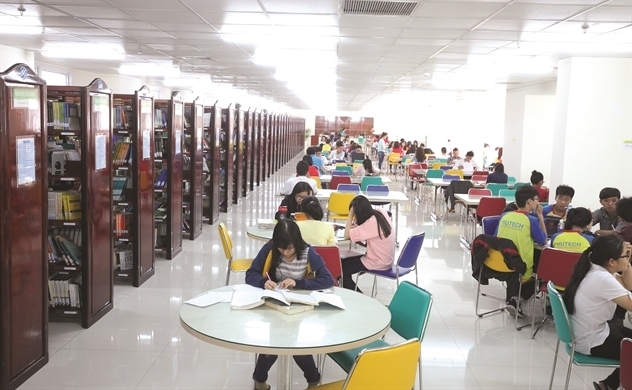In late October, in the 2020 ranking of the world’s universities by US News & World Report, Vietnam National University, Hanoi, ranked 1,059th and the Vietnam National University, HCM City 1,176th.

In Asia, the two schools rank 275th and 322nd, respectively.
Another Vietnam school, the private Ton Duc Thang University, was also assessed, but there was no ranking.
US News & World Report assessed and ranked the schools based on 13 criteria from the scientific database from Clarivate Analytics InCites, with the focus on the schools’ prestige and research quality. Only the universities with 1,500 published scientific articles in 2013-2017 were considered.
This was the first time Vietnam had its schools listed in the prestigious ranking.
| In late October, in the 2020 ranking of the world’s universities by US News & World Report, Vietnam National University, Hanoi, ranked 1,059th and the Vietnam National University, HCM City 1,176th. |
According to Prof Tran Hong Quan, chair of the Vietnam Association of Universities and Junior Colleges, though there are still many existing problems, Vietnam has improved its higher education significantly to reach the same level with the world.
A report of the association shows that Vietnam has 123 universities and 5 junior colleges meeting Vietnamese quality standards and 7 higher education establishments meeting foreign standards.
However, of 5,000 training programs, only 139 ones have been recognized as undergoing the accreditation by foreign institutions and 19 meeting domestic stanrds.
Dr Le Hoai Quoc, president of the HCM City Automation Association, said if compared with the world, the training programs in Vietnam are relatively outdated. As a result, most university graduates cannot satisfy the requirements set by employers. That is why Vietnamese students tend to study abroad to obtain more useful knowledge.
According to TTC Edu, Vietnamese parents spend up to 47 percent of their income to fund children’s education. Every year, Vietnamese spend $3 billion to send their children abroad. There are about 160,000 Vietnamese studying overseas.
If Vietnam’s higher education can improve the training quality, Vietnamese students would choose to study in Vietnam rather go abroad. In other words, universities in Vietnam would be able to receive the huge amount of $3 billion.
Vietnam has set up a goal of having 450 students for every 10,000 people by 2020. The figure includes 40 percent of students at non-state owned schools.
As of 2019, Vietnam has five foreign invested schools, 68 private universities and 170 state-owned schools. There are more than 500 joint training programs between Vietnam’s and foreign univesrities in top 500.
Non-state higher education establishments now account for 7 percent of total schools, while the number of non-state school students accounts for 6 percent.
Linh Ha

In Vietnam, unemployment rate among higher education graduates is higher than others
Between 70 and 80 percent of the unemployed are junior college (3-year training) or university (4-5 year training) graduates.

New policy raises concerns about higher education quality in Vietnam
Education experts have warned that new policies would lead to the mass production of bachelor’s and master’s degree holders.
 As Vietnamese are spending more money on their children’s education, higher education in Vietnam has proven to be a lucrative business.
As Vietnamese are spending more money on their children’s education, higher education in Vietnam has proven to be a lucrative business.